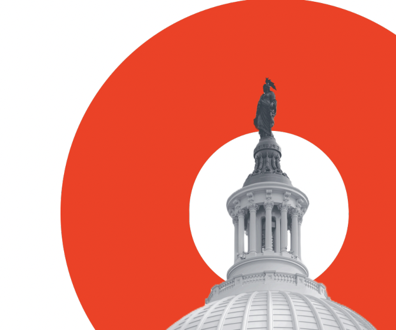Viewpoint: We Need an Investigation of Hatch Act Crimes at the Republican National Convention
It is not enough for the Office of Special Counsel to investigate civil violations of the law.
While it is normal for speakers at a party’s national convention to advocate for their presidential candidate, it was unprecedented when federal officials invoked official authority in their partisan political advocacy at the Republican National Convention last month. By doing so, these officials violated the federal Hatch Act. As members of Congress and others have urged, the Office of Special Counsel, the agency that enforces the civil Hatch Act, has opened an investigation.
White House Chief of Staff Mark Meadows scoffed at these allegations, arguing that, “Nobody outside of the Beltway really cares” about the Hatch Act. It would have been more accurate if Meadows had said, “Nobody inside the Trump White House really cares” about the law. More than a dozen senior administration officials have violated the Hatch Act, and some aides reportedly take pride in violating it. Last year, despite the Special Counsel’s plea that failure to punish would “send a message” that federal employees need not abide by the law, President Trump refused to punish an aide who committed repeated violations.
It is not enough for the Office of Special Counsel to investigate civil violations of the Hatch Act, particularly in light of President Trump’s defiance of that office’s past findings. The Hatch Act also has criminal provisions. While its civil provisions exempt the President and Vice President, the criminal provisions have no such exemption. The Justice Department needs to investigate the criminal violations that took place at the RNC.
As enacted by Congress in 1939, the Hatch Act prohibited anyone in a federal “administrative position” from using “official authority” to affect a federal election. This restriction actually appears twice: as a civil and a criminal restriction—the only prohibition that appeared in both parts of the original Hatch Act. Government officials repeatedly violated this law at the RNC.
The first two violations involved two unusual government proceedings—the President’s pardoning of a former prisoner and the naturalization of five new citizens—that occurred on August 25 and were videotaped and broadcast as part of the RNC that evening. Pardons themselves are relatively rare, but this pardon was unprecedented because President Trump signed the pardon document as part of a staged ceremony in the presence of the former prisoner receiving the pardon. The naturalization ceremony was unusual in several respects. It took place in the White House, and President Trump and several uniformed Marines looked on as acting secretary of Homeland Security Chad Wolf administered the oath of citizenship. By staging these official government functions—a presidential pardon and a naturalization ceremony—so they could be broadcast as part of the RNC, President Trump and Chad Wolf violated the Hatch Act by using “official authority for the purpose of … affecting” President Trump’s election.
A third violation involved a videotape of Lynne Patton, a Trump ally and political appointee at the Housing and Urban Development Department, interviewing four residents of public housing in New York City. These residents spent more than four hours speaking with Patton, discussing their housing concerns while being videotaped. That videotape was edited down to less than three minutes and highlighted one resident’s complaint that “Democrats put illegal immigrants before Black Americans” while showing an image of Democratic nominee for president, Joe Biden. One of the residents later said she “was disappointed that her words were twisted to support President Trump.” Three of the residents said they had been misled about the purpose of the video, were not told that it would be broadcast at the convention, and indicated that they opposed President Trump. Patton appears to have used her official authority to persuade these four public housing residents to participate in a video that would be used to affect President Trump’s reelection.
Vice President Pence violated this Hatch Act provision when he gave a speech to the RNC while standing at a lectern adorned with the official Vice Presidential seal. The agency responsible for administering the civil Hatch Act has ruled that a federal employee who advocates for a presidential candidate while in the visible presence of a government seal improperly uses official authority. It found that then-HUD Secretary Julian Castro improperly used official authority to influence the 2016 Presidential election by answering a reporter’s question about his support for a Presidential candidate while HUD’s official seal was visible behind him.
President Trump and Ivanka Trump similarly violated this provision when they spoke on the final night of the convention while standing at a lectern featuring the Presidential seal. The mere presence of the Presidential seal during these speeches was enough to create a Hatch Act violation. But a violation of even greater seriousness was the use of the White House as a backdrop for these RNC speeches. While relatively few people may be familiar with (or influenced by) an official government seal, the image of the White House is widely understood to be a symbol of federal authority. President Trump’s acceptance speech provided evidence that this was the reason he staged the RNC at the White House.
After criticizing the Democratic nominee and those supporting him, Trump declared, “This November, we must turn the page forever on this failed political class.” He then turned around, pointed to the White House, and asked, “What’s the name of that building?” After some laughter and applause, he pronounced, “The fact is we’re here, and they're not,” stirring even more applause. Through this language, President Trump demonstrably gloated that he and his Republicans allies were able to exploit the White House as a symbol of government authority to affect the Presidential election. Could there be a more willful violation of the Hatch Act?
The prohibition on using official authority to affect an election is no mere technical rule. It reflects a fundamental principle that goes to the heart of government ethics: the idea that public office should be used for public gain, not private gain. While most anti-corruption standards are aimed at preventing government power from being exploited for private financial gain, the Hatch Act is aimed at preventing government power from being exploited for private political gain. Thousands of employees have been investigated for alleged civil Hatch Act violations, and at least two Presidents (Carter and Clinton) and one Vice President (Gore) were investigated for allegedly soliciting political donations in the White House in violation of the criminal law.
The prohibition on using official authority has a long pedigree: so long, in fact, that it actually predates the Hatch Act by more than 50 years. It can be traced to the 1883 Pendleton Act, where Congress required the executive branch to promulgate rules prohibiting anyone in the public service from using “his official authority or influence to coerce the political action of any person or body.” Over the next 20 years, three presidents issued executive orders broadening this prohibition. A few months after the Pendleton Act’s passage, President Chester Arthur banned civil servants from using their “official authority or influence either to coerce the political action of any person or body or to interfere with any election.” In 1888, President Cleveland expanded the rule to prohibit the use of “official authority or influence for the purpose of interfering with an election or controlling the result thereof.” And in 1903, President Theodore Roosevelt expanded it further, prohibiting the use of “official authority or influence for the purpose of interfering with an election or affecting the result thereof.” When Congress enacted the Hatch Act in 1939, it criminalized this restriction and expanded its application from civil servants to anyone “employed in any administrative position” in the executive branch. (Congress further expanded its reach in 1940, applying it to state and local government employees whose activities are financed in whole or part by the federal government.)
For more than a century, federal law has prohibited using official authority to affect an election, and for more than 80 years, it has been a federal crime to do so. The Justice Department needs to investigate the “Hatch Act crime spree” that took place at the RNC.
Kathleen Clark is a law professor at Washington University and previously trained District of Columbia employees on the Hatch Act.






